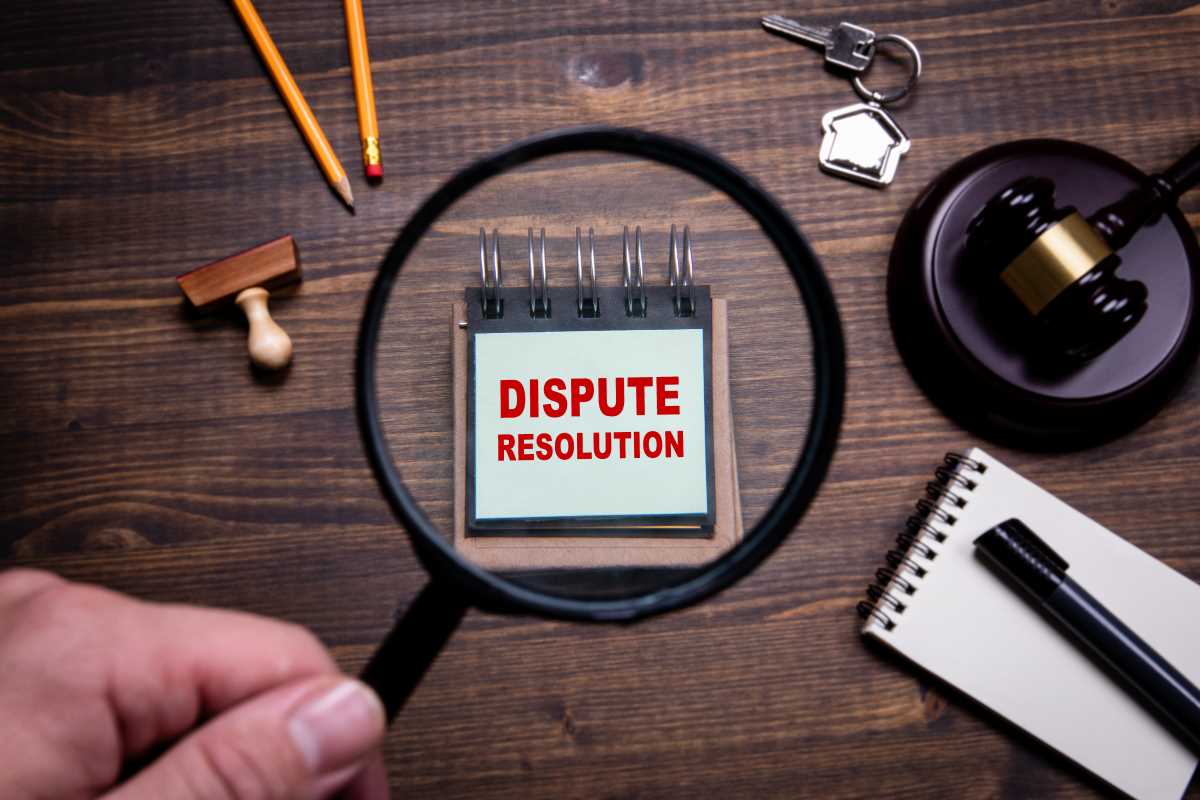A cease and desist letter is a formal request demanding that an individual or entity stop engaging in certain activities, typically due to infringement on rights or legal violations. These letters are often sent to address issues such as intellectual property infringement, harassment, defamation, breach of contract, or other unlawful actions. While receiving such a letter can be unsettling, it is essential to understand that it is a legal tool used to protect someone’s rights or interests.
If you receive a cease and desist letter, your first reaction may be panic or frustration, but responding thoughtfully and strategically is crucial. Ignoring the letter or reacting impulsively could escalate the situation and lead to further legal consequences. Instead, a well-considered response can help mitigate risks, protect your interests, and potentially resolve the issue without resorting to legal action.
This article outlines key strategies for responding to a cease and desist letter effectively. We’ll discuss how to assess the letter’s validity, decide whether to comply or challenge the claims, and what steps to take to safeguard your legal position.
Analyze the Claims and Assess Their Validity
The first step when receiving a cease-and-desist letter is to analyze the claims made by the sender carefully. It’s important to avoid reacting impulsively without fully understanding the situation. Begin by reading the letter thoroughly to ensure that you understand the allegations and what is being demanded.
Examine the Specific Claims: What exactly is the sender requesting you to cease and desist? Is it an accusation of infringement on intellectual property, such as copyright or trademark violation? Or is it related to personal behavior, such as harassment or defamation? Understanding the specific issue at hand will help you decide on an appropriate course of action.
Verify the Legal Basis: Determine whether the sender has a legitimate legal basis for their claims. Are they referencing a valid trademark, patent, or copyright? If the claims concern intellectual property, check whether the sender holds the rights they claim or if their assertions are unfounded. In some cases, they may be mistaken, or their claim may not be enforceable.
Review the Alleged Violation: If the letter accuses you of violating a law or a contract, assess whether you are indeed in violation. Do you have evidence or documentation that supports your position? For example, if you’re accused of using someone else’s copyrighted work, do you have proof of permission or a fair use defense?
Consult Legal Counsel: If the claims are complex or you’re uncertain about their validity, it’s always advisable to seek the counsel of an attorney. A legal expert can help you evaluate the strength of the claims, provide advice on how to respond, and protect your legal rights.
Taking the time to thoroughly assess the cease-and-desist letter's validity is crucial for formulating a measured and informed response.
Decide Whether to Comply or Contest the Allegations
After analyzing the claims, you must decide whether to comply with or contest the letter’s demands. This decision will depend on the strength of the allegations, the potential consequences of non-compliance, and your position in the matter.
Complying with the Letter: In some cases, compliance with the cease-and-desist letter may be the best course of action. If the claims are valid, and it’s clear that you have infringed on someone’s rights or violated a law, it may be easier to stop the offending activity simply. Compliance can help prevent further legal action, such as filing a lawsuit, and might lead to a quicker resolution. If you agree to stop the activity in question, make sure to provide written confirmation of your compliance.
Challenging the Allegations: If you believe that the cease-and-desist letter is based on incorrect information or that the sender’s claims are unfounded, you may decide to contest the allegations. In this case, your response should assert that the claims are not valid and provide supporting evidence. For instance, if you’re accused of copyright infringement, you could explain why your use of the material qualifies as fair use, or if the sender lacks standing, you could provide evidence of that. If you feel that the sender’s demands are unreasonable or legally unfounded, a well-crafted response can prevent the matter from escalating.
Negotiating a Resolution: In some cases, you may wish to negotiate with the sender. If you acknowledge that there was a violation but don’t want to completely cease the activity, you may be able to reach an agreement that allows you to continue with certain modifications or under certain conditions. Negotiation could result in a more favorable outcome than a formal dispute.
Ultimately, the decision to comply, challenge, or negotiate will depend on the situation’s specifics. Weigh the potential risks and benefits carefully, and consult legal counsel to make the best decision for your circumstances.
Craft a Professional and Concise Response
Once you’ve made a decision on how to respond to the cease-and-desist letter, it’s important to do so in a professional and measured way. Your response should be clear, concise, and free from emotional language, as a hasty or emotional reply could worsen the situation.
Acknowledge the Letter: Begin your response by acknowledging that you have received the cease-and-desist letter. This shows that you are taking the matter seriously and that you are committed to addressing the issue. If the letter has multiple claims, it may be helpful to address each point separately.
State Your Position: If you are complying with the demands, briefly state that you will cease the activity or behavior in question and explain any steps you are taking to ensure that the issue does not recur. Be clear about your intentions and show that you are acting in good faith. If you are contesting the claims, clearly state why you disagree with the allegations. Include any evidence or legal arguments that support your position.
Be Professional and Respectful: While asserting your position is important, it’s equally important to remain respectful and professional. Avoid inflammatory language or insults, as this could escalate the situation. A well-reasoned, polite response will show that you are taking the matter seriously and may help in reaching a peaceful resolution.
Offer to Discuss: If appropriate, offer to discuss the matter further to reach an amicable resolution. Indicating that you are open to dialogue may help resolve the situation without the need for further legal action. If you believe there is room for negotiation, express your willingness to explore options.
Seek Legal Assistance: If the matter is complex or you’re unsure how to respond, it’s a good idea to have an attorney review your response before sending it. Legal experts can ensure that your response is legally sound and aligns with your best interests.
Understand the Consequences of Ignoring the Letter
One of the biggest mistakes you can make when receiving a cease-and-desist letter is ignoring it. Failing to respond or disregarding the letter can lead to significant legal consequences and escalate the issue further. Here's why ignoring a cease-and-desist letter is risky:
Potential for a Lawsuit: If you ignore the letter, the sender may decide to pursue formal legal action. A lawsuit can result in costly legal fees, court costs, and damages, which could far exceed the costs of addressing the issue early on. If you don’t respond, the sender may assume that you’re unwilling to resolve the matter and may seek a court order to stop your actions.
Damaging Your Reputation: Not responding to a cease and desist letter could also harm your reputation, especially if the matter involves defamation, intellectual property infringement, or other legal violations. If the sender chooses to disclose the issue publicly, you may face reputational damage that could harm your business, personal brand, or professional standing.
Loss of Legal Options: Ignoring the letter could limit your legal options. For example, if you don’t address the allegations, you may lose the opportunity to settle the matter or negotiate favorable terms. By taking action early, you can protect your rights and keep the matter under control.
It’s important to treat a cease and desist letter seriously and respond promptly. Even if you don’t agree with the claims, it’s best to address the matter directly to avoid escalating the situation.
When to Seek Legal Advice
In certain cases, it’s advisable to consult with an attorney before responding to a cease-and-desist letter. Legal counsel can help you navigate complex legal issues, protect your interests, and avoid potential pitfalls. Here are situations where you should consider seeking legal advice:
Complex Legal Issues: If the cease-and-desist letter involves complex legal issues, such as intellectual property law, contract law, or regulatory compliance, consulting an attorney is a smart move. They can help you understand the legal implications of your situation and guide you on the best course of action.
Threats of Litigation: If the sender threatens to take legal action or file a lawsuit, it’s a good idea to seek legal advice to understand the potential consequences and ensure you are adequately prepared for any legal challenges.
Uncertainty About Your Rights: If you’re unsure whether you’re right or need help evaluating the strength of the sender’s claims, a lawyer can help you assess the situation objectively and provide expert guidance.
Responding with Confidence
Receiving a cease-and-desist letter can feel intimidating, but it’s crucial to approach the situation calmly and strategically. By carefully analyzing the claims, deciding whether to comply or contest, crafting a professional response, and understanding the risks of ignoring the letter, you can effectively manage the situation and protect your legal interests.
- Carefully assess the claims and verify their validity
- Decide whether to comply, challenge, or negotiate
- Craft a clear, professional, and respectful response
- Understand the risks of ignoring the letter
- Seek legal advice when necessary
With a thoughtful response, you can minimize the impact of a cease-and-desist letter and potentially resolve the issue without resorting to further legal action.
 (Image source: Midjourney)
(Image source: Midjourney) 





